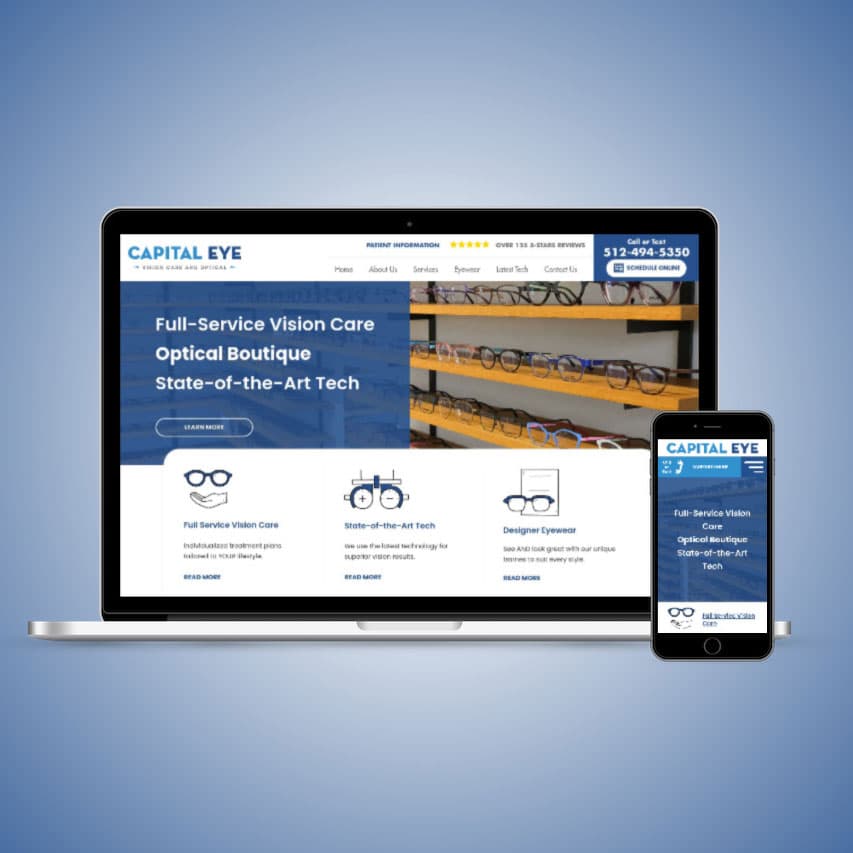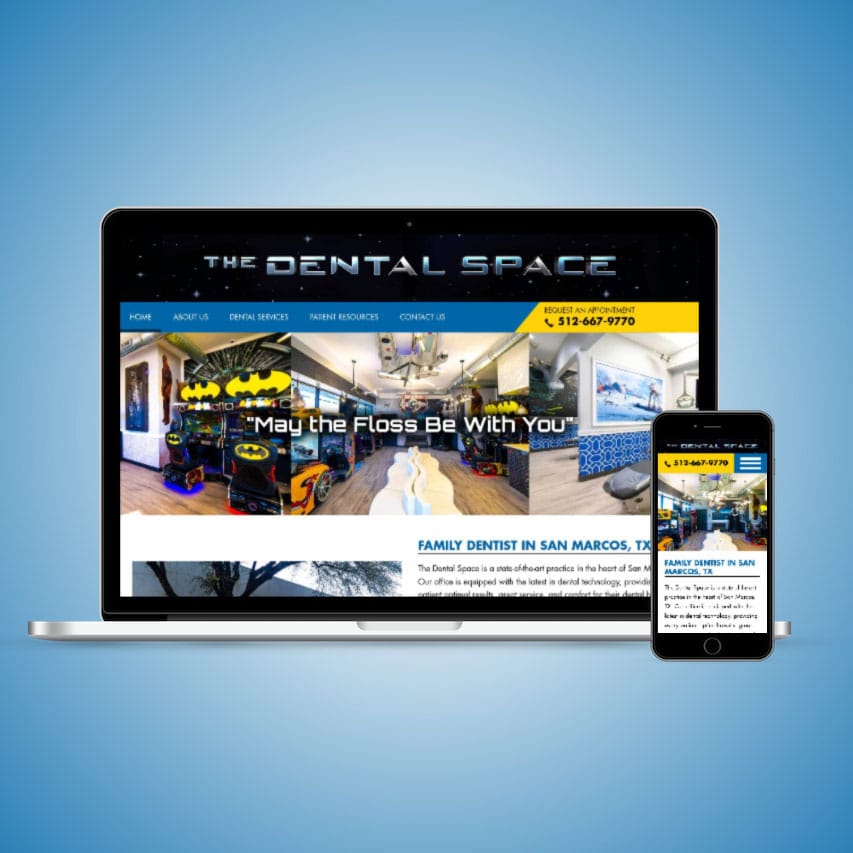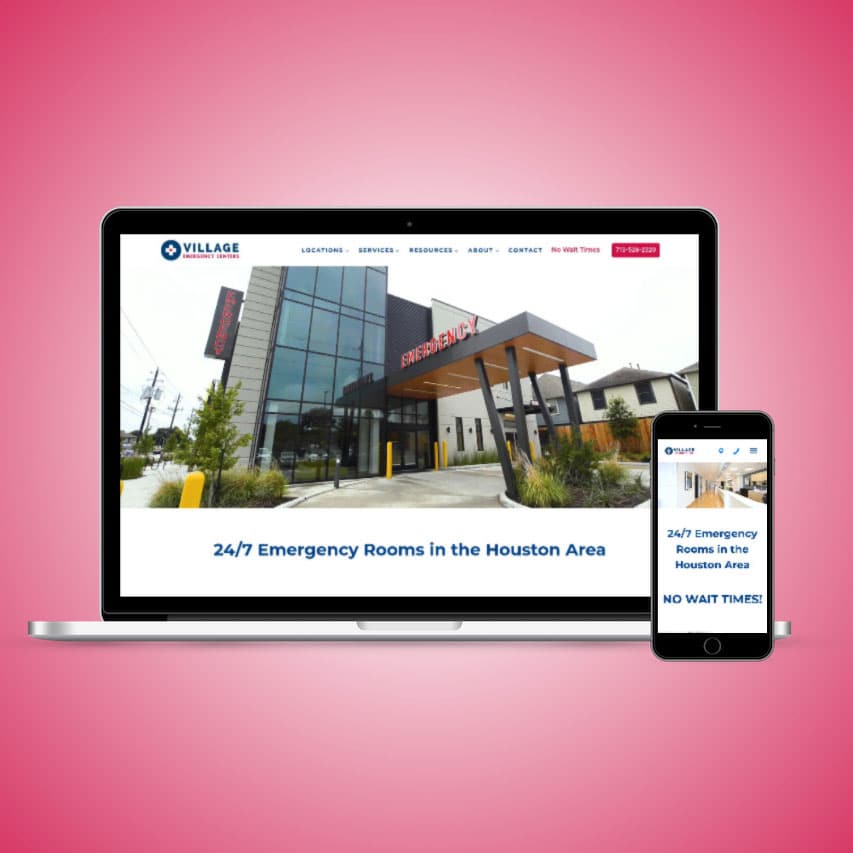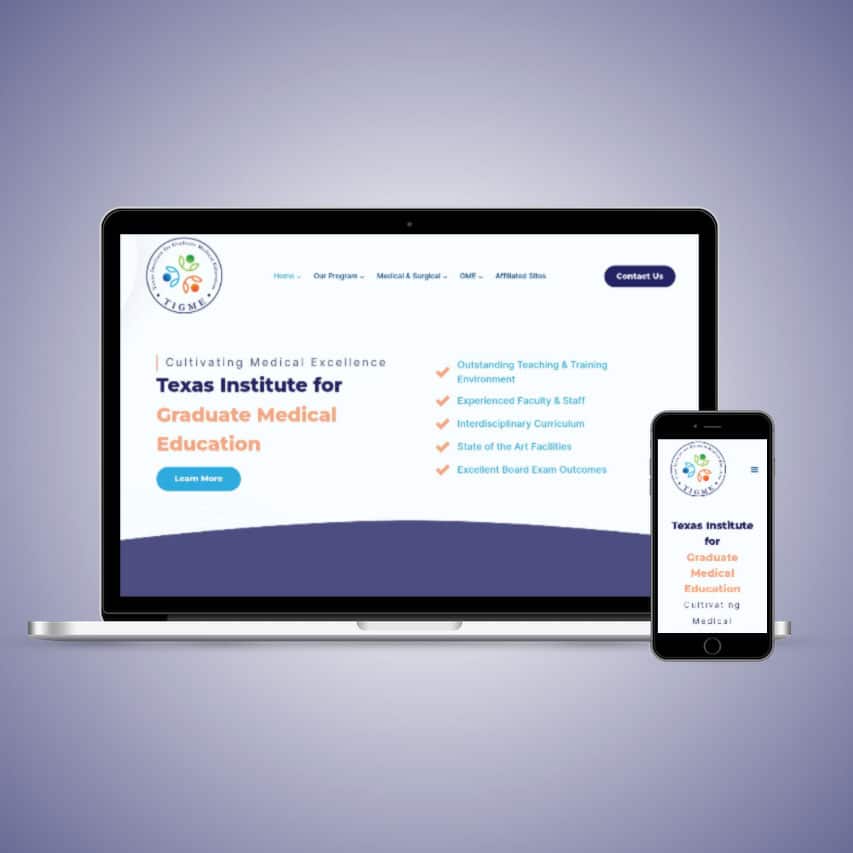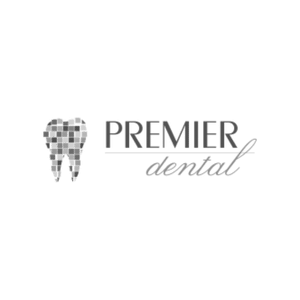Medical Practice Website Design
Our website design services incorporate and reinforce your brand, while building trust and credibility with your audience.
Our Website Design Services
A website is an important tool for any healthcare provider to convey important information to the patients who need your services. If your website is slow, outdated, doesn’t work on a smartphone, or simply can’t be found easily, you are losing potential patients.
As a medical practitioner, your website must convey the experience, knowledge, professionalism and care that patients are looking for.

The Best Doctor Website Designs Include These Features
Your website should reflect your healthcare practice’s values, approach to patient care, and commitment to patient satisfaction. We strive to design a website that truly reflects your brand as a medical provider.
Having a well-designed website is essential to brand management. Our designs convey the right tone and message, while also building a sense of professionalism, competence, and trustworthiness for potential patients. It is the first impression many potential patients will have of your practice, so it’s important to make it a good one.
Our Medical Website Designs
Check out some of our recent work for our clients.
why do i need a fast site?
Accelerated Doctor Website Speed Optimization
Website speed is key to creating a positive user experience on your website. The internet user of today has little patience for websites that load too slowly. If your site loads slow, they are likely to move on to the next prospective doctor.
Our medical websites are developed with speed and functionality in mind. Improving speed means improving user experience and keeping visitors on your site.
Here are some of the ways we help speed up websites:
- HTTP3 servers
- Caching Pages
- Optimizing Images
- File Compression
- Lazy Loading
- And More
A study by Google found that 53 percent of mobile users will abandon a site if it takes longer than three seconds to load. As a medical professional, this is particularly true. Potential patients need information about your services and they want to be able to find that information as quickly and easily.
1 In 4 Visitors
would abandon a website that takes more than 4 seconds to load.
46%
Nearly half of all customers will never visit a website again if they’ve experienced poor loading times in the past.
1.65 Seconds
The average page loading speed for websites ranked on the first page of Google results.
Website Maintenance
Your website is often the first point of contact between you and prospective patients. If it is outdated or full of security vulnerabilities, they may seek care elsewhere.
Up-to-date
Fresh content is a key factor in search engine rankings. Users will also notice if your last blog post is 5 years old.
Secure
Hackers are continually evolving their methods and technology. No matter how secure your website is today, it will not stay that way without regular maintenance to combat these ever-changing threats.
By using our website maintenance services, you can rest assured that your website will always be up-to-date and secure. We’ll handle all of the:
YEARS AS AN SEO FOCUSED AGENCY FOR DOCTORS
PAGE 1 GOOGLE RANKINGS DELIVERED
PAGES OF CONTENT WRITTEN FOR DOCTORS
LEAD CONVERSIONS FOR OUR CLIENTS
Mobile Responsive Web Design For Medical Practices
More than 60% of all internet traffic now takes place on mobile devices. To have a website that is competitive, it must work well on a variety of devices, from small smartphones to large desktop monitors. Mobile responsive websites adjust to the size of the screen they are being viewed on. This gives users the optimal experience and increases conversions.
If you’ve ever tried to navigate a non-responsive website on a smartphone, you likely found the experience incredibly frustrating. Content is often too small to read, or runs off the side of the screen. A mobile responsive website allows doctors to reach the widest possible audience and give their practice the best chance of success.
Over 60% of internet traffic now comes from smartphones and tablets.
Mobile responsive websites are much more likely to have higher rankings in search engines. We design websites that will look good across all mobile and desktop devices.
What Our Clients Say
Trusted By Doctors Nationwide
Make Your Website Easy to Find
If prospective patients look for a doctor of your specialty in your area, what will they find? Will you be at the top of page 1, or nowhere to be found? Getting your website to rank is a critical part of your online marketing strategy, and building the site to be search engine friendly will help you get there.
Keeping that in mind, here are a few key considerations.
- The website should be designed using clean and well-structured code.
- Google, Facebook, and other traffic sources love Structured Data and Schema Code, which should be present for Reviews, Location Information, FAQs, etc.
- The website’s architecture should avoid being flat by having more page depth and interlinking to relevant pages.
- The website’s Sitemap should be submitted to Google Search Console so that Google Bot will crawl the site, index pages, and flag any issues that may prevent a page from showing in Google’s index.
- Finally, the site should be designed to load quickly and efficiently. Slow-loading sites are often penalized by Google, which can lead to lower search rankings, especially for search done on mobile devices.
With these guidelines in mind, we can build your website to improve the chances it will appear in search engine results and lay a strong foundation for implementing a successful search engine optimization (SEO) strategy.
Easy-to-use Websites On Any Device And Any Browser
Many Healthcare Websites Are Not Designed With User Experience In Mind. Overly Complicated Navigation, Not Displaying Correctly On Mobile Devices, And Hard-To-Find Calls To Action Can Cause Potential Patients To Become Frustrated And Move On To Another Provider’s Website.
Market Share for Top Browsers in 2022:
Market Share for Top Operating Systems in 2022:
A responsive website design ensures that your site functions correctly on any device. All links should work and pages load quickly, with easy to use navigation and eye-catching calls to action to keep users on your site.
By taking the time to optimize your website for users, you can help turn first-time visitors into lifelong patients.
Incorporating a few simple design principles can go a long way to improving the user experience:
- A clean, uncluttered layout that prominently features the most important information.
- Clear, concise text that provides people the information they need quickly and easily.
- Information organized using menus and drop-down lists for easy navigation.
- Pages that load quickly and links that lead to the right places.
- Large, easy-to-click buttons to make it simple for visitors to take action.
Ready to Grow Your Business?
Whether you have no website or a website that needs a boost in search engine rankings, WE CAN HELP!








